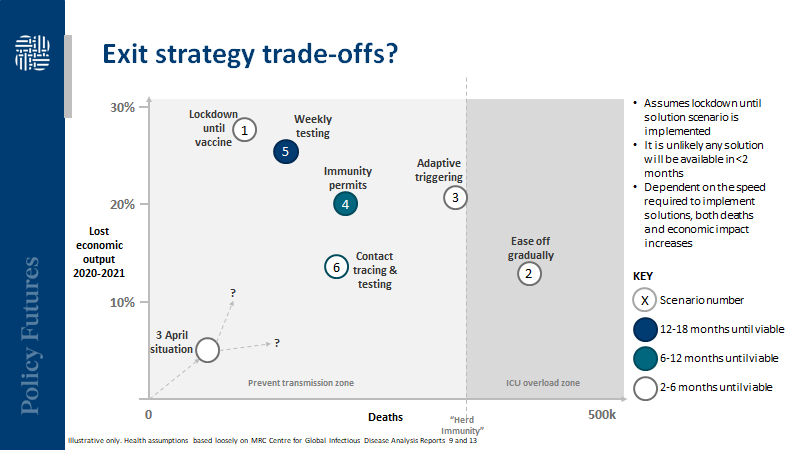How to get out of the coronavirus lockdown – and save both lives and the economy
There are a number of potential exit strategies, but app-based contact tracing combined with mass-testing is the key

Your support helps us to tell the story
From reproductive rights to climate change to Big Tech, The Independent is on the ground when the story is developing. Whether it's investigating the financials of Elon Musk's pro-Trump PAC or producing our latest documentary, 'The A Word', which shines a light on the American women fighting for reproductive rights, we know how important it is to parse out the facts from the messaging.
At such a critical moment in US history, we need reporters on the ground. Your donation allows us to keep sending journalists to speak to both sides of the story.
The Independent is trusted by Americans across the entire political spectrum. And unlike many other quality news outlets, we choose not to lock Americans out of our reporting and analysis with paywalls. We believe quality journalism should be available to everyone, paid for by those who can afford it.
Your support makes all the difference.How can we escape from the coronavirus lockdown? Some would have you believe that even discussing the question is reckless. What if it confuses or undermines the government’s message to stay at home and save lives?
However, once case numbers come down, the route out of this crisis will require difficult choices and broad-based public support. Unless we start to build that support now, the cost of coronavirus – in terms of lost lives and livelihoods – will continue to mount.
The government has six main options for defeating Covid-19. First, it could try to maintain the current aggressive social distancing measures until a vaccine becomes available in 12-to-18 months. This would limit the number of deaths. But such a strategy would come at extraordinary cost – socially, mentally, physically and economically. We could see economic activity this year fall by as much as a third, unemployment in the many millions, and severe permanent damage to living standards. Faced with such costs it is hard to see how public consent for the lockdown can hold.
Could the government gradually ease off the restrictions once new cases of the virus slow to a trickle? On its own, this approach would probably result in another spike in infections. No country has yet been able to get the virus under control without stringent social distancing measures. Work from Imperial College London suggests that it’s only when we’ve thrown the kitchen sink at the virus that its spread can be arrested.

Instead the government could look to dial restrictions up and down over time to control the outbreak. Tougher measures would be deployed when new cases hit a certain threshold and subsequently relaxed once numbers dropped. The health costs here would be significant, and over the course of the coming year it would lead to many thousands of deaths. But nor does the strategy offer much for people’s livelihoods. The same Imperial College team estimates that we would need to spend as much as two-thirds of the time on lockdown. It’s hard to see many businesses hiring or investing in the knowledge that the economy will spend most of the year in the deep freeze.

What about “immunity certificates”? If we could get a reliable antibody test, perhaps people who’ve had the virus and acquired immunity could be allowed to go back to work. But this poses several problems, not the least of which is that no such reliable test currently exists. Even when it does, if less than 10 per cent of the population have had the disease, are we really proposing to keep the other 90 per cent in penury, under lock and key for a year or until they catch it? Immunity certificates on their own are an ethical and economic non-starter.
Mass testing has been high on the agenda in recent weeks and it’s possible to imagine a fifth exit strategy based on this approach alone. But with the coronavirus incubation period typically less than a week, a clear test result is only valid for a few days. That suggests a random testing approach would need to cover many millions of people every week to keep a lid on an outbreak. It could take many months to get the supplies and logistical infrastructure in place for such a programme, and we don’t have that sort of time.
The trick then is to maximise the value of the testing capacity we do have by pairing it with a system to close down the chain of transmission between infected people. If someone who tests positive can quickly alert all those they’ve been in recent contact with, getting them to self-isolate, we can put this virus out of business.

App-based contact tracing combined with mass-testing therefore offers the only viable way out of the crisis that allows us to save lives without crushing the economy. For it to work, such an app would need to be used by a majority of the population. To allow us to move faster, the strategy could be combined with supplementary measures, like shielding of the over-65s or a region-by-region approach to ending the lockdown, until such time as app coverage and testing capacity were high enough too put the virus in lockdown.
Such intrusive containment measures will raise important questions among the public, and their effectiveness will depend upon achieving widespread acceptance.
That should be achievable. We need not ape the Orwellian powers handed to the South Korean government to track and publish citizens’ locations. Much more promising is the Singaporean approach of an app that logs anonymised phone details of people who have come within close Bluetooth range. Contacts are then alerted instantly of someone who subsequently tests positive for the infection. Anonymised contact data is automatically deleted after a number of days.
The World Health Organisation (WHO) advises that countries should not lift lockdown restrictions unless they are sure that they have a tracing and testing system in place that keeps communities safe. Getting that tracing system isn’t just about cracking the tech, it will also require the British public to be comfortable with its use.
In this race against time, we should discuss what those urgently needed measures mean for our society, now.
Ian Mulheirn is executive director for policy at the Tony Blair Institute

Join our commenting forum
Join thought-provoking conversations, follow other Independent readers and see their replies
Comments